The SAFS community shares thoughts on what it’s like to be back on campus after nearly 18 months of mostly remote instruction and administration.
Awards & Honors (Autumn 21 / Winter 22)
Each year, our students, faculty, and staff win regional, national, and international awards. Please join us in congratulating this year’s group of award winners!
Students
Degree track and faculty advisers in parenthesis
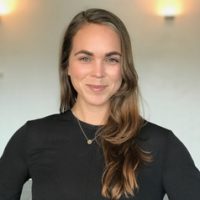 Hannah Bassett (PhD, Hilborn) netted the best student paper award at the MARE Center for Maritime Research conference for her paper, “A comparative study of smallscale fishery supply chains’ vulnerability and resilience to COVID-19.”
Hannah Bassett (PhD, Hilborn) netted the best student paper award at the MARE Center for Maritime Research conference for her paper, “A comparative study of smallscale fishery supply chains’ vulnerability and resilience to COVID-19.”

Rachel Fricke (PhD, Olden) obtained the College of the Environment Integral Environmental Big Data Research Fund Award for her project,“Emerging technologies to assess human benefits from and risks to water resources.”
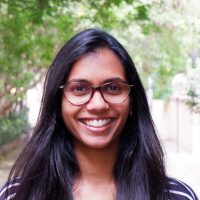 Maria Kuruvilla (PhD QERM, Berdahl) received a Wild Fish For All Scholarship from the Native Fish Society.
Maria Kuruvilla (PhD QERM, Berdahl) received a Wild Fish For All Scholarship from the Native Fish Society.
 Natalie Mastick (PhD, Wood) gave the best student oral presentation at the Pacific Fisheries Technologists 72nd Annual Conference for her paper, “Detecting change in anisakids using archival canned salmon.”
Natalie Mastick (PhD, Wood) gave the best student oral presentation at the Pacific Fisheries Technologists 72nd Annual Conference for her paper, “Detecting change in anisakids using archival canned salmon.”
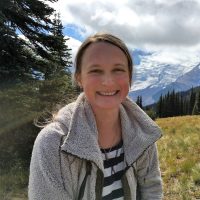 Anne Polyakov (PhD QERM, Berdahl) received a Hall Conservation Genetics Research Fund for her project, “Characterizing genetically distinct ectomycorrhizal fungal communities adapted to a natural nitrogen gradient along salmon streams.” She also received a Stuntz Mycology Grant from the Stuntz Foundation and the Forest Fungal Ecology Research Award from the Mycological Society of America.
Anne Polyakov (PhD QERM, Berdahl) received a Hall Conservation Genetics Research Fund for her project, “Characterizing genetically distinct ectomycorrhizal fungal communities adapted to a natural nitrogen gradient along salmon streams.” She also received a Stuntz Mycology Grant from the Stuntz Foundation and the Forest Fungal Ecology Research Award from the Mycological Society of America.
Souta (Bill) Saechao (undergraduate) was awarded a Clarence H. Campbell Endowed Lauren Donaldson Scholarship from the College of the Environment.
Anna Simeon (PhD, Hauser) obtained a research grant from the Save Our Seas Foundation.
Faculty and Staff
 Tim Essington was elected as a Fellow of the American Fisheries Society.
Tim Essington was elected as a Fellow of the American Fisheries Society.
 Jason Toft helped organize the 2021 Nearshore Restoration Summit, which won the Washington Department of Fisheries and Wildlife’s Steve Phelps Leadership in Science Award. This award recognizes the challenge of science communication and the value of a robust dialogue to achieve conservation outcomes. Jason’s lab was also selected as a 2021 UW Lab Safety Innovator.
Jason Toft helped organize the 2021 Nearshore Restoration Summit, which won the Washington Department of Fisheries and Wildlife’s Steve Phelps Leadership in Science Award. This award recognizes the challenge of science communication and the value of a robust dialogue to achieve conservation outcomes. Jason’s lab was also selected as a 2021 UW Lab Safety Innovator.
 Chelsea Wood won a NSF CAREER Award.
Chelsea Wood won a NSF CAREER Award.
André Punt Passing the Director’s Torch
After a decade of serving as director of SAFS, André Punt is stepping down to focus on his teaching and research. Over the past ten years, he has navigated the School through challenging times, such as the ongoing pandemic, as well as historic highs, like the Centennial Celebration in 2019. Please join us in thanking André for going above and beyond as SAFS Director.
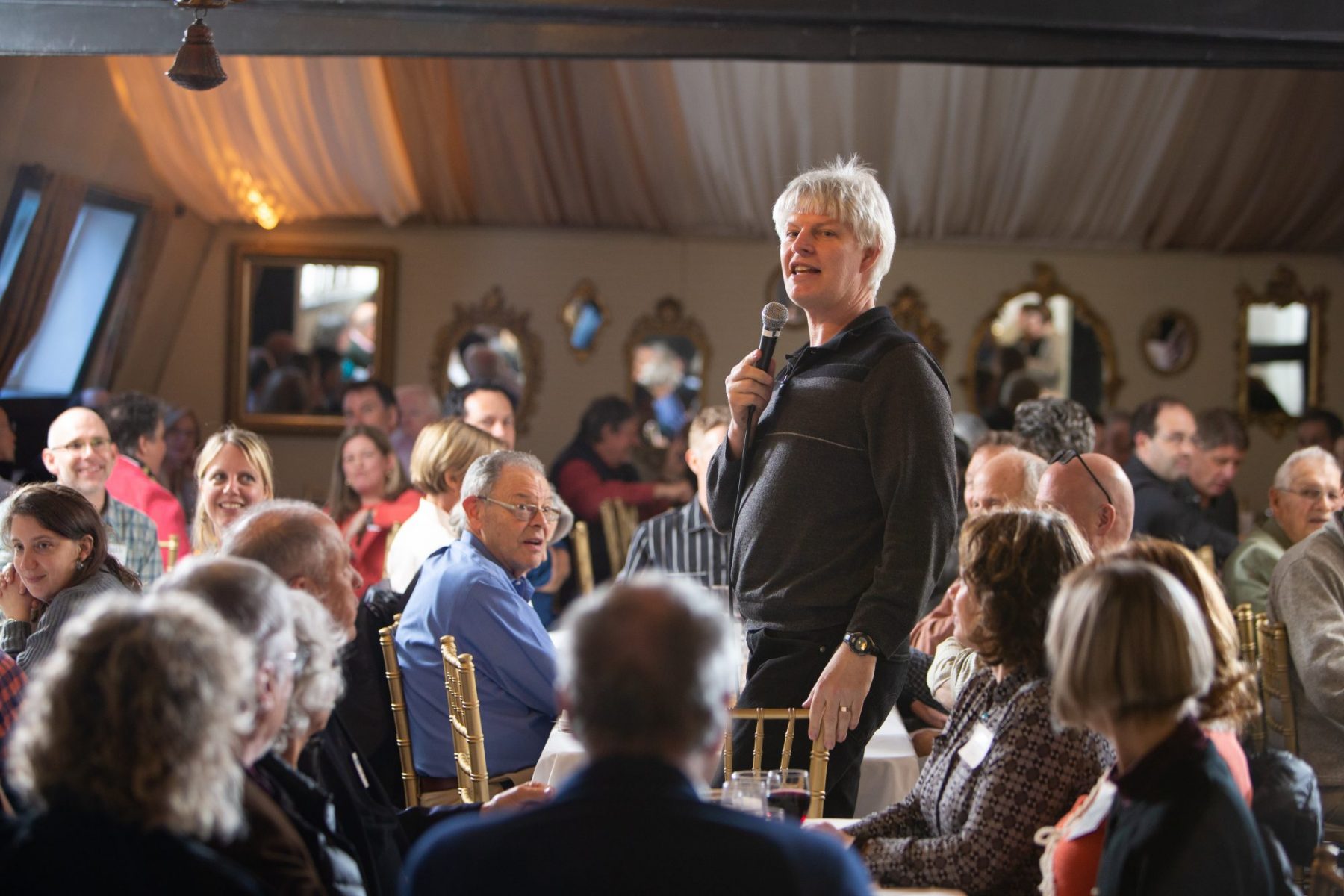
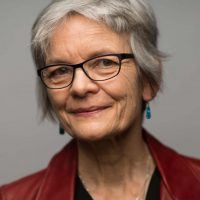 “André brought a wide range of skills to his role as Director of SAFS. He prided himself on data-driven decisions in scholarship as well as departmental management, and he could be depended upon to keep the Dean’s office on our toes in providing timely and accurate reports to chairs and directors. Underlying his drive to quantify is a deep commitment to doing the right thing. Beyond data, he is known for his warmth, humor, and abiding concern for the wellbeing of students, staff, and faculty. He cares deeply about the future of fisheries as well as the future of all those people who depend on the sustainability of the resource. He has left a fine legacy as Director that will serve SAFS for years to come.”
“André brought a wide range of skills to his role as Director of SAFS. He prided himself on data-driven decisions in scholarship as well as departmental management, and he could be depended upon to keep the Dean’s office on our toes in providing timely and accurate reports to chairs and directors. Underlying his drive to quantify is a deep commitment to doing the right thing. Beyond data, he is known for his warmth, humor, and abiding concern for the wellbeing of students, staff, and faculty. He cares deeply about the future of fisheries as well as the future of all those people who depend on the sustainability of the resource. He has left a fine legacy as Director that will serve SAFS for years to come.”
Lisa Graumlich, former Dean, College of the Environment
 “André stepped into the Director’s chair at a rough time for the School. The University was still reeling from the great recession and the School’s budget situation was perilous. He stepped in and did what few could pull off: dig deep into the minutiae of the School’s finances, track every penny spent on every budget, ultimately putting the School on solid footing for the future. At the same time, André approached the position as a partnership: a partnership between him and his staff, between him and the faculty, and between him and the students. He always put the School’s needs first, and he created a new model for transparency in decision making in the School.”
“André stepped into the Director’s chair at a rough time for the School. The University was still reeling from the great recession and the School’s budget situation was perilous. He stepped in and did what few could pull off: dig deep into the minutiae of the School’s finances, track every penny spent on every budget, ultimately putting the School on solid footing for the future. At the same time, André approached the position as a partnership: a partnership between him and his staff, between him and the faculty, and between him and the students. He always put the School’s needs first, and he created a new model for transparency in decision making in the School.”
Tim Essington, Professor, SAFS
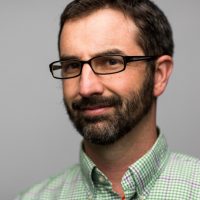 “As we approach the final season with Dr. André Punt as the Director of the School of Aquatic and Fishery Sciences, I think it is important to recognize and appreciate what he has done for the School. It would be an understatement to say that the past several years have offered up some challenges. André has served a central role in the success of our School, championing its members and leading the way for continued success going forward. I do not think even André could have ever predicted the dynamic role the Director has had to serve these past few years, yet he has shown up everyday to do what was necessary for the rest of the community to teach, learn, and grow. It has been a pleasure working with him, and I thank him for serving as director for the last 10 years.”
“As we approach the final season with Dr. André Punt as the Director of the School of Aquatic and Fishery Sciences, I think it is important to recognize and appreciate what he has done for the School. It would be an understatement to say that the past several years have offered up some challenges. André has served a central role in the success of our School, championing its members and leading the way for continued success going forward. I do not think even André could have ever predicted the dynamic role the Director has had to serve these past few years, yet he has shown up everyday to do what was necessary for the rest of the community to teach, learn, and grow. It has been a pleasure working with him, and I thank him for serving as director for the last 10 years.”
Steven Roberts, Professor, SAFS
Diversity, Equity, and Inclusion (DEI) Assessment at SAFS

After more than a year of research, planning, and advocacy by grad students, staff, and postdocs, SAFS completed its first-ever DEI Assessment (or “Equity Audit”) in autumn quarter 2021. SAFS contracted with WhitworthKee Consulting, who held focus groups and developed a survey instrument to assess the School’s climate and opportunities for growth. The final report, presented in November 2021, recommends a number of strategies to better align our actions with our ideals, including:
- expanding intentional recruitment practices, • increasing access to trainings and professional development,
- clarifying processes and procedures within the School, especially around safety and bias reporting,
- engaging in ongoing review of SAFS policies and practices to identify where bias and discrimination are being (or could be) perpetuated, and
- revising those policies and practices to make them more equitable.
In the months since the report was released, the SAFS Equity and Inclusion Committee has been holding spaces for discussions of the Equity Audit findings and recommendations. These have been opportunities for community members in similar roles or with shared identities to engage in open and honest communication, share thoughts and feelings, ask questions, and suggest ideas for future actions SAFS can take to advance DEI. Already, three areas for growth have emerged as priorities: improving communication, building community, and enhancing consistency across the School. Communication, community, and consistency are deeply interconnected, and how well or poorly we engage in them affects everyone at SAFS, regardless of identity or access to institutional power.
It is critical to understand that members of our community who have less institutional power and/or belong to groups that are systemically underrepresented in STEM are most negatively impacted by problematic dynamics. As we continue the work to advance equity at SAFS, beginning with necessary updates to our DEI Strategic Plan, we commit to centering our work on supporting and uplifting the members of our community with the least privilege and power. This is the way to create the greatest impact both for individuals and for the School as a whole.
Aquatic Sciences Affinity Groups
For some time, members of SAFS have wanted to build stronger connections with peers who share their social identities. Given the demographic realities of SAFS, UW, and environmental science fields, it is important to hold protective spaces that center the voices, perspectives, and experiences of people from groups that are underrepresented in these institutions. To support that, we are now running two affinity groups centering people of color (POC) and lesbian, gay, bisexual, transgender, queer (or sometimes questioning), intersex, asexual, and two-spirit (LGBTQIA2+) folks.
The POC Affinity group is a space that focuses on Black folks, Indigenous folks, and other folks who identify as or are affiliated with people of color, building relationships and offering mutual support. The Queer and Trans Affinity Group works to increase visibility of LGBTQIA2+ individuals and identities in environmental science fields through educational events and offers a space to build relationships. Both groups are open to students, postdocs, faculty, and staff in any aquatic science field.
New Opportunities for DEI Learning
During autumn quarter, the SAFS DEI book club returned in a new format as the SAFS DEI Learning Group, which meets every other week. Members of the group read articles, watch videos and short documentaries, and listen to podcasts that serve as springboards for discussion during the group meetings. Past “readings” have included “Characteristics of White Supremacy Culture” by Tema Okun; the short documentary, “No Time to Waste;” and podcast episodes about housing segregation from Code Switch and 99% Invisible. The group also decides on a book to read each quarter, and this winter, members are reading “An Indigenous Peoples’ History of the United States” by Rozanne Dunbar-Ortiz. The DEI Learning Group is open to everyone in SAFS, regardless of existing knowledge and familiarity with DEI concepts; all participants need is the desire to learn and engage in respectful discussion. Discussions are informal and are focused on personal growth and reflection.

New DEIJ Award
In 2021, SAFS established the Diversity, Equity, Inclusion and Justice (DEIJ) and Community Service Recognition Award, which recognizes significant contributions of members of SAFS towards advancing a climate for excellence in community service, academic endeavor, teaching, and research. To date, the following SAFS members have received the award: Staci Amburgey; Ashley Townes; the team of Jenny Gardner, Kristin Privitera-Johnson, and Yaamini Venkataraman; Natalie Lowell (honorable mention); Jennifer Gosselin; and Eleni Petrou. SAFS is honored to have so many members of our community dedicated to advancing diversity, equity, inclusion, and justice. This award is supported by the SAFS community and our friends through donations to the “SAFS Diversity, Equity, Inclusion and Justice and Community Service Recognition Award.”
In Memoriam: Lynwood Stephen Smith
Thank you to the Smith family and the many students, colleagues, and friends for their contributions to this memoriam.
On July 30, 2021, Lynwood Smith, SAFS professor emeritus, passed away at the age of 92.

Lynwood was born in Snohomish, Washington. He obtained his undergraduate degree and PhD from the University of Washington. Before joining the School of Fisheries in 1965, Lynwood taught zoology at Chehalis High School, Bremerton Community College, and the University of Victoria, Canada. Lynwood joined the UW faculty as an associate professor and was promoted to full professor in 1976. He retired from the University of Washington in 1993.
During his time at the School of Fisheries, and as member of the Fisheries Research Institute (FRI), Lynwood’s research focused on real-world issues and opportunities. His publications included contributions to fish physiology and the effects of environmental stress on fish. He also documented gas-bubble disease in migrating salmon on the Columbia River around the tailraces of the major dams with Tim Newcomb (PhD, 1978), one of his students. This work led to the deployment of “flip lips” in the tailrace, which project water along the surface of the river, thereby reducing gas supersaturation that causes gas-bubble disease. Lynwood also conducted research on salmon smoltification; work with Tom Flagg (MS, 1981) demonstrated the reduction in swimming ability of juvenile salmon during smoltification.
Later in his career, Lynwood helped to set up a “Center of Excellence” in Valparaiso, Chile, funded by the Rockefeller Foundation, and then led the same kind of program for USAID in Ambon, Indonesia. Lynwood published six books: “Common Seashore Life of Northern California & the Pacific Northwest” (1962), “Introductory Anatomy and Biology of Selected Fish and Shellfish“ (1973), “A Practical Guide to the Anatomy and Physiology of Pacific Salmon” (1975 with Gordon Bell), “Living Shores of the Pacific Northwest” (1976 with Bernard Nist), “Introduction to Fish Physiology” (1982), and “Environmental Stress and Fish Diseases” (1999 with Gary Wedemeyer and Frey Meyers).
Tom Flagg noted, “When I took Lynwood’s Fish Anatomy class in the early 1970s, I was introduced to the informative lab book he authored that detailed organ anatomy, nerve, and circulatory systems. I used the book when I subsequently served as his teaching assistant, and a now very dog-eared copy still sits on my bookshelf.”
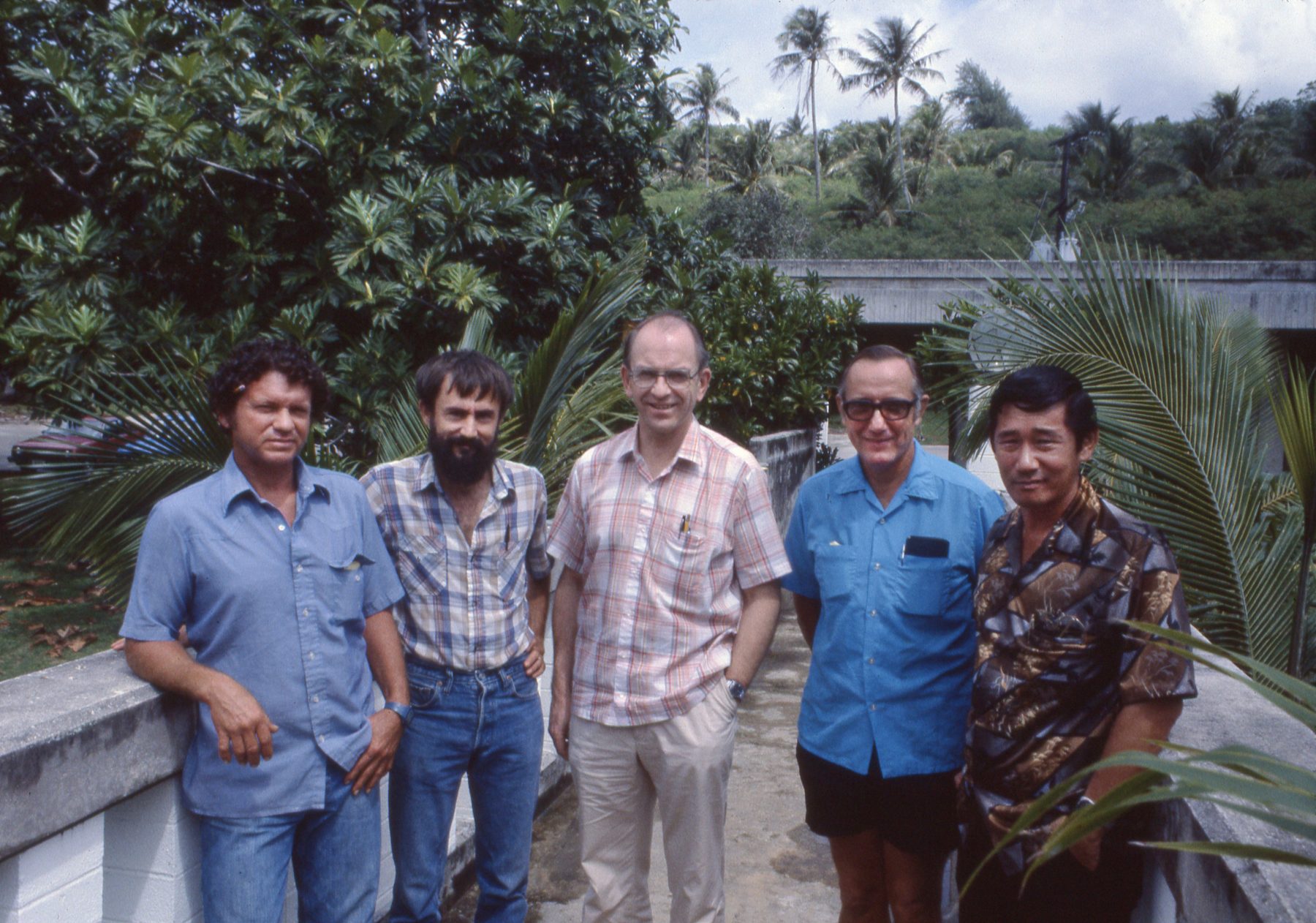
Lynwood’s students emphasized how he developed new hands-on tools for working with live fish and carefully documented each tool, from surgical procedures to exposure chambers to biochemical and physiological stress response measures.
Lynwood’s work on the swimming physiology of adult salmon took place on the 100 x 35 ft floating laboratory R/V Kumtucks (“to know or to understand” in Chinook), which he was instrumental in getting built and running. Alan Mearns (PhD 1971) said that Lynwood’s idea for the Kumtuks was simple: “take the lab to the fish.” (To learn more about the R/V Kumtucks, read Alan’s centennial story)
“I learned much more than science from Lynwood—lessons that carried me though the rest of my career.”
Alan Mearns (PhD 1971)
Alan recalled, “Lynwood was a perfect professor for me at the time of my doctoral studies. He was a very thoughtful, quiet, respected person, who cared for his students. He was chief of the ‘Kumtuks team,’ having designed, then overseen, construction of the UW’s floating laboratory, involving graduate students in every aspect of vessel and laboratory maintenance and field work. He collaborated with other staff and faculty, basically showing his students how to appreciate diversity, connecting us with other FRI projects and the larger world of prominent fish physiologists. He taught us medical and surgical procedures that he adapted for working with live fish, yet he also gave us independence to work out our own approaches to solving scientific challenges.” Alan also noted, “I learned much more than science from Lynwood—lessons that carried me through the rest of my career: think big, design your own approach to problems, challenge conventional wisdom, make lasting friends…and summarize what you learn in a simple graphic.”
Rick Cardwell (PhD 1973) recalls, “I felt Lynwood distinguished himself for his character and as an educator, not for the rough-and-tumble life of getting grants and publishing.”
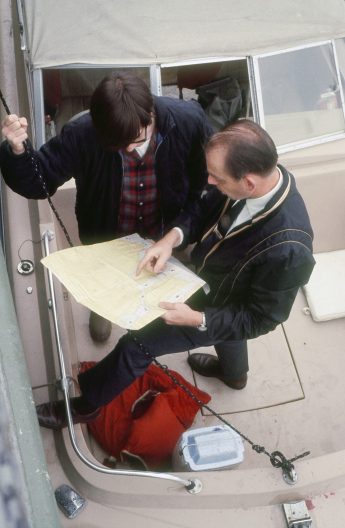
Gary Sakagawa (PhD 1972) remembers Lynwood as a gracious person who provided him time for an experiment on his barge, which was anchored one summer in Neah Bay. Gary’s time on the barge was a great experience because all Lynwood’s graduate students were there. They lived on the barge and had time to exchange information on each other’s experiments and thoughts about fishery issues.
Following his retirement, Lynwood continued to build small boats, do woodwork, create Bonsai trees and make music.
Lynwood is survived by his wife Betty; their three children, Becky, Peggy, and Paul; four grandchildren; and one great granddaughter.
Time-traveling parasites: Chelsea Wood wins NSF CAREER Award
SAFS Associate Professor Chelsea Wood is the recipient of a 2022 CAREER Award from the National Science Foundation (NSF). This prestigious award will support Wood’s novel research on the historical ecology of parasitism and will allow her to create an active-learning, open-access version of her undergraduate parasite ecology course.
 The NSF selects award recipients who are faculty members at the beginning of their careers with the potential to serve as academic role models in research and education and to lead advances in the mission of their department or organization. The intent of the NSF CAREER program is to provide stable support that enables awardees to develop their careers not only as outstanding researchers, but also as educators demonstrating commitment to teaching, learning, and dissemination of knowledge.
The NSF selects award recipients who are faculty members at the beginning of their careers with the potential to serve as academic role models in research and education and to lead advances in the mission of their department or organization. The intent of the NSF CAREER program is to provide stable support that enables awardees to develop their careers not only as outstanding researchers, but also as educators demonstrating commitment to teaching, learning, and dissemination of knowledge.
“This is my dream project,” said Wood. “NSF’s support will let my team travel back in time to answer the question: is the world wormier than it used to be?”
Global environmental change is thought to increase the transmission of parasites that cause infections; however, there are vanishingly few historical data that track rates of wildlife disease over time. Without a long-term dataset, it is challenging to determine if the burden of infection observed today is “normal.”
“I’ve worked extensively in pristine places, like uninhabited islands in the central Pacific. Untouched ecosystems that exist today give us some hints about how all ecosystems used to work, before human influence changed them. In fact, we often call today’s pristine ecosystems ‘windows into the past.’ But if they are windows into the past, the panes are a little grimy, because no modern ecosystem is totally untouched by human influence,” said Wood. “Our approach is to extract parasitological information from museum specimens of fish from the past several decades, giving us the opportunity to actually reconstruct parasite assemblages as they were 20, 50, or even 100 years ago.”
Wood has put together a powerful experimental design using fish collections to look at the parasite burden before and after a change in the environment. New techniques have allowed researchers to successfully dissect preserved specimens and examine them for whatever parasites they hosted when they were collected.
In addition to her work at the University of Washington Burke Museum’s Fish Collection, Wood will examine fishes at the Tulane University Biodiversity Research Institute and the University of New Mexico’s (UNM) Museum of Southwestern Biology—chosen for specimens they house in relation to anthropogenic changes that have occurred in the environments in which they originated. The Tulane collection contains fishes sampled over 42 years up- and down-stream of discharge from two pulp mills. UNM has amassed the largest collection of fishes (including some endangered species) from any urban ecosystem in North America, with over 70 years of specimens collected above and below a diversion channel in the Rio Grande River.
This NSF grant will help fund a new PhD student and a postdoctoral scholar in Wood’s lab along with eight undergraduate students, four from the UW and four from other institutions.
The prevalence or lack of parasites within the specimens can answer vexing environmental questions that have thus far eluded researchers. This opportunity will allow Wood to peer back in time and gain an understanding of ecosystems of the past: how abundance of parasites has changed over decades, the role of environmental stressors such as pollution and urbanization in that change, and whether these stressors also influence the stability of parasite communities as they experience other disturbances.
The CAREER award will also provide support for Wood to re-design her Parasite Ecology course (FISH 406), infusing active-learning principles, adding a new module on her CAREER-funded research, and implementing a course-based undergraduate research experience (CURE). For their CURE projects, each enrolled student will pose their own ecological question, analyze real datasets produced by Wood’s team, and write a journal-style article on their findings.“The goal is to let students step into the role of scientists; they get an authentic research experience, and the students, in turn, will make discoveries in our datasets that the research team might otherwise miss,” said Wood. “Students with outstanding papers will be supported to revise and submit their work to peer-reviewed journals.”
Wood plans to measure the impact on student learning of the redesigned course compared with a more traditional teaching style. She plans to publish the results, so that her findings can be adapted by other instructors.
For younger students, Wood is developing a 2nd–5th grade module on parasites, which can be used by elementary school teachers along with an accompanying children’s book on parasites, which she is authoring.
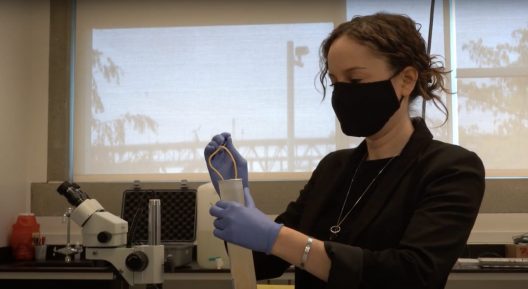
Finally, Wood is making sure that all the products of her CAREER award are publicly accessible. “Our data will be posted to public repositories, the re-designed course will be fully downloadable for other institutions to use, and our elementary learning module will be an open educational resource.” In addition to producing new discoveries about how parasite transmission has changed through time and in response to anthropogenic stressors, she hopes that this project will make it easy for teachers and professors at other institutions to offer material on parasites to their students. “They’re at least 40% of all animal species,” Wood said. “It’s about time for us to understand whether parasites are increasing or declining through time, and beyond time, for parasitism to be part of biology education.”
A decade of deep-reef exploration in the Greater Caribbean
AI model shows how Amazon dams can be made less environmentally damaging
Providing Useful and Usable Science to Decision Makers: How the Lenfest Ocean Program Works
The Lenfest Ocean Program (LOP) funds research projects that address the needs of marine and coastal stakeholders and supports grantees who will engage with the people most likely to use the results. By pulling back the curtain on their processes, the LOP hopes they can help managers, stakeholders and others better understand the many ways in which the philanthropic community can help link useful science with decisions.
Highlighting the Lenfest Fishery Ecosystem Task Force, this video tells a story of how LOP brought scientists, including SAFS Professor Tim Essington, and managers together to transition toward ecosystem-based fisheries management in the U.S. Caribbean and beyond.

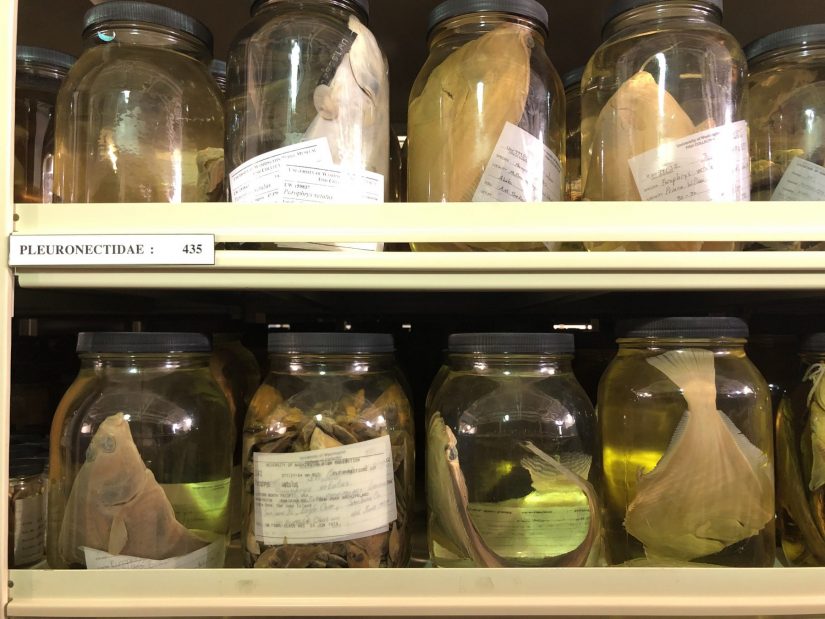
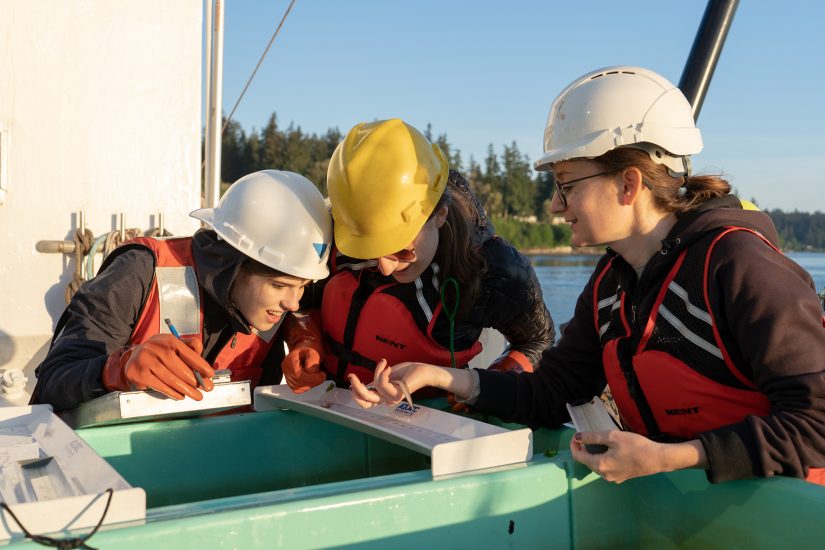
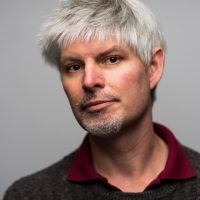 Dear Friends,
Dear Friends,